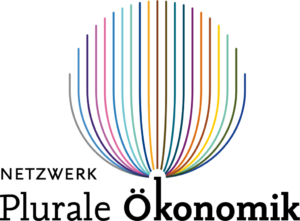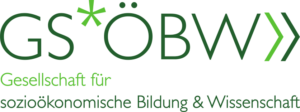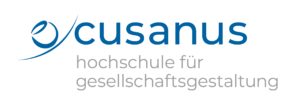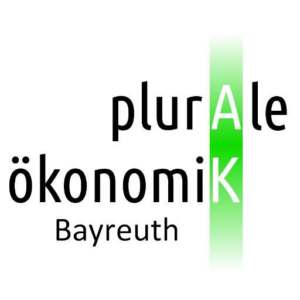Institutions provide the framework for our thoughts and actions. Changing institutions means changing our thinking and acting, which again means changing institutions. Institutions - their understanding and design - play a key role in societal transformation.
INTRO
Changing existing institutions as well as founding and building new ones have been central to my scientific work since the beginning of my commitment to changing economics and economic education. Form and content of science, let alone education, cannot be separated.
It makes a difference how, for example, study regulations, higher education law, accreditation regulations, personnel policy, research funding are designed and which images of science, researchers and students underpin this. I experienced the immense creative and transformative potential in building these institutions and continue to work on their consolidation and expansion.
Pluralism in science is not just a matter of diversity of ideas, theories, and methods. The History of Economics Diversity Caucus advocates for diversity in the biographical backgrounds, perspectives, and locations of scholars in the field of the History of Economics. We are committed to structurally promoting the participation of previously underrepresented groups, such as colleagues from the Global South, people of color, or people with children, in the scholarly discourse in our field’s professional conferences, review-, and tenure processes. Not only are their research approaches irreplaceable for the discipline.
It is an expression of epistemic justice that these perspectives are and can be represented in the discourse as well. Here, too, it is a matter of developing constructive practical approaches and providing resources, such as best-practice examples and guidelines in exchange with our colleagues in leading positions.
ASEER uniquely links research and teaching in the field of socioeconomics. Too often, especially in reform efforts, these two facets of our discipline are not thought of together. To date, for example, advances in economic research have hardly found their way into the canons of the textbooks. At the same time, there is a multitude of innovative didactic approaches and pedagogical visions on how economic education can be designed in schools, like universities, beyond mere knowledge reproduction.
Since 2018, (2018 -2022 as a member of the board of ASEER), I have been advocating for a productive synergy of innovative economic didactics and research characterized by a critical stance, multi-perspectivity and an orientation towards real-world phenomena. The New Teaching Caucus, which we founded in 2019, stands exemplary for these synergies. With its regular meetings, it promotes the exchange of teachers who (want to) go new ways of economic education and already gathered best-practice examples in two publications, which are operationalized in such a way that they can easily be multiplied.
Through my involvement in the founding and development of the Cusanus University for Social Transformation (CUST), I have learned what an institution and the institution of university in particular means in all its facets – legal, financial, organizational, didactic, pedagogical, ethical, human. This is due, among other things, to the fact that I have been active in almost all areas of the university since 2013: fundraising, public relations, student recruitment, study program coordination, member of the Senate and appointment committees, once participating in, once co-leading a study program accreditation, study program design, co-founder of the local student association and its scholarship system, alumni relations, teaching, research, and most recently research coordination.
I understand the founding and building of this institution as a transformative act: the awareness of a structural need, envisioning a solution, its implementation in confrontation with perceived and real legal, mental, or economic limitations, and the consolidation of innovation into becoming an institution. The encouraging experience of this work is that often much more is possible than one thinks and that there are many alliances for structural change in the landscape of academic institutions.

The history of the network is a success story of the institutionalization of voluntary student activism. We founded the network in 2012 as a successor organization to the Working Group Real World Economics in order to provide a legal umbrella for the then scattered student activities advocating for more multi-perspectivity and reflexivity in economics. Again, I was involved in building the institution: in the Finance team, as a board member, as co-creator of the PluraloWatch campaign from which the Exploring Economics platform emerged.
We were concerned with constructively encountering problems that affected ourselves as students of economics with creative solutions that met our standards for economic education. This ranged from conferences, such as the first pluralist conference, and public media campaigns for a reform of Economics, to reading circles, networking, and the conception and implementation of our own courses, as well as advocacy for its integration into existing study-programs. Today, the network is indispensable as a contact point for affected students, as a multiplier for best-practice examples and as a provider of courses and teaching materials. One could also say that the network is an institution.
For me, the founding of the working group in 2012 is another prototype for self-organization, transformation, and institutionalization. Unfortunately, my experience in this journey is shared by so many other economics students to this day: After the initial magic of the first semester of Economics, you realize in the second semester that many of your own interests and concerns have no place there. One has the impression that the problem lies with oneself. Those who do not come to terms with their studies, change their course of study or leave the academic path altogether, share these experiences with others and identify structural problems.
Together with other fellow students, I then organized the economic education we were looking for: oriented toward real-world phenomena, critical, multi-perspectively, historically grounded, ethically reflected, and innovative. We organized reading circles and lecture series, such as one on neoliberalism. To make these informal formats accessible to more students, we founded the Working Group for Pluralist Economics, which was recognized by the student parliament and therefore had access to funding and university policy. With the working group as a contact, it was easier to negotiate the integration of our courses into existing study programs, and to network with other student working groups in Germany and on the international stage. The working group still exists today.



